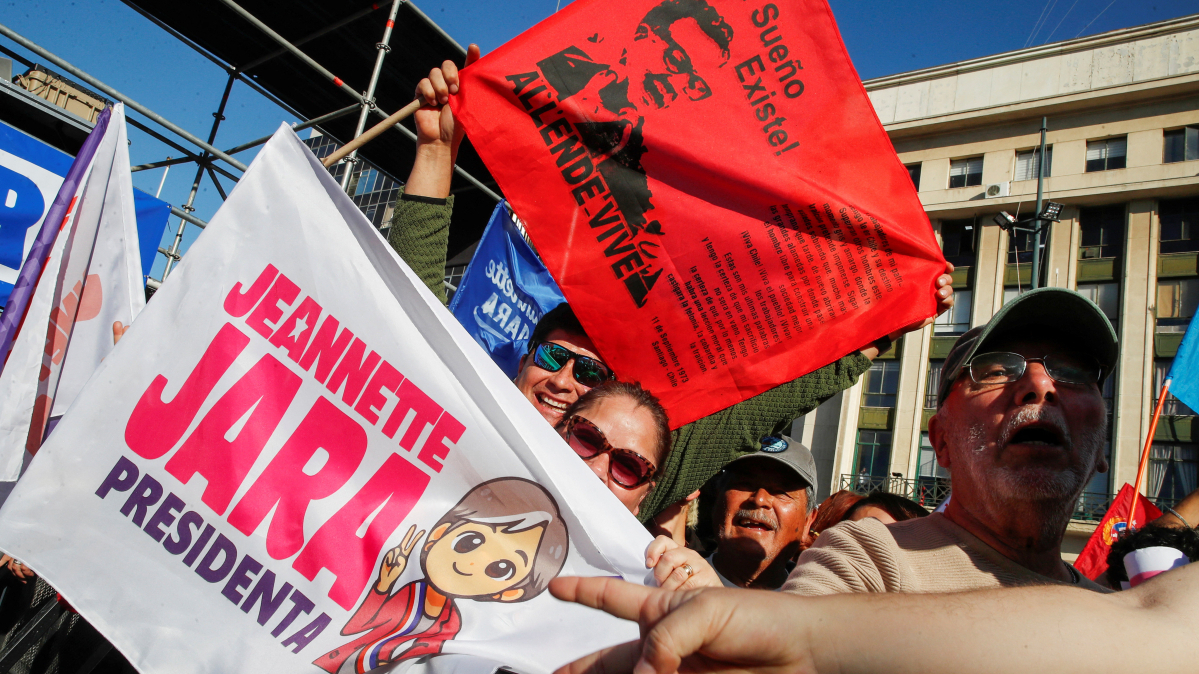live Qatar shoots down Iranian jets: All the latest news on the Iran strikes
The Middle East crisis intensifies after the deadly attack on the compound of the Supreme Leader of Iran Ali Khamenei on Saturday t...

Chileans will vote on Sunday in the country's first mandatory presidential election since 2012, with security and immigration shaping a race expected to move to a December run off.
Chile is preparing for a national vote in which more than 16 million eligible citizens are required to participate. The return to compulsory voting follows several years of high abstention, leaving a large share of previously inactive or undecided voters now entering the process.
Eight candidates are competing for the presidency, and current polling suggests that no one will reach the majority needed to win in a single round. Jeannette Jara, a former labour minister supported by the governing coalition, has focused her campaign on wages, workers' rights and the development of the lithium industry.
Jose Antonio Kast, leader of the Republican Party, has emphasised immigration and public security. Johannes Kaiser, running with the National Libertarian Party, has proposed reducing the size of the state and withdrawing from several international agreements. Evelyn Matthei, a former minister and former mayor, represents the moderate right and is taking part in her second presidential bid.
Run off expectations and legislative stakes
Polling indicates that the race is likely to move to a run off on 14 December, most probably involving Jara and Kast, though the final outcome will depend on turnout and late deciding voters.
The presidential vote coincides with significant legislative elections. All 155 seats in the lower house and 23 out of 50 Senate seats are being contested. The governing coalition currently holds a minority in both chambers. A right wing majority in both the executive and legislative branches would be the first since the early 1990s. If right aligned parties secure four sevenths of both chambers, they would have the numbers required to pass constitutional reforms.
Mining and copper
Copper has shaped Chile’s economy for decades, with Codelco remaining a central pillar since the nationalisation of major assets in the early 1970s. The sector changed after the 1973 coup, when new laws opened the industry to private investment alongside the state miner. Since the return to democracy, Chile has relied on copper revenues to support public services, while rising demand for lithium has added new strategic importance.
Jara supports expanding Codelco’s role in lithium, while Kast favours auditing the company and easing regulations to attract more private investment. Mining companies are pressing candidates to simplify environmental permitting to advance new projects and increase production.
Follow the latest developments and global reaction after the U.S. and Israel launched “major combat operations” in Iran, prompting retaliation from Tehran.
Saudi Arabia’s state oil giant Saudi Aramco closed its Ras Tanura refinery on Monday following an Iranian drone strike, an industry source told Reuters as Tehran retaliated across the Gulf after a U.S.-Israeli attack on Iranian targets over the weekend.
The Kremlin is utilising the recent United States and Israeli military strikes on Iran to validate its ongoing war in Ukraine. Russian officials are pointing to the escalation in the Middle East as evidence that Western nations do not adhere to international rules.
The Middle East crisis intensifies after the deadly attack on the compound of the Supreme Leader of Iran Ali Khamenei on Saturday that killed him, other family members and senior figures. Iran has launched retaliatory strikes on U.S. targets in the region.
Ayatollah Alireza Arafi has moved into a pivotal constitutional role following the death of Supreme Leader Ayatollah Ali Khamenei, becoming the clerical member of Iran’s temporary leadership council under Article 111 of the Constitution of the Islamic Republic of Iran.
The U.S.-Iran crisis has entered its third day, with further strikes reported across the Middle East and the death toll rising. Oil prices have surged to levels last seen during the Covid-19 pandemic, raising fears of economic disruption and higher prices worldwide.
The UK said it's allowing the U.S. to use its bases for defensive strikes against Iran amid escalating missile attacks, after a suspected drone strike hit a British airbase in southern Cyprus, causing limited damage.
The Kremlin is utilising the recent United States and Israeli military strikes on Iran to validate its ongoing war in Ukraine. Russian officials are pointing to the escalation in the Middle East as evidence that Western nations do not adhere to international rules.
European Union stands with its member states in the face of any threat, EU Commission President Ursula von der Leyen said in response to the drone strike that hit Britain's Royal Air Force base of Akrotiri in southern Cyprus overnight.
Start your day informed with AnewZ Morning Brief. Here are the top news stories for the 27th of February, covering the latest developments you need to know.
You can download the AnewZ application from Play Store and the App Store.

What is your opinion on this topic?
Leave the first comment